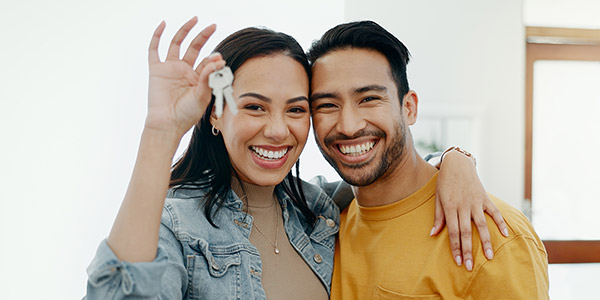Homebuyers
Buying Out of State: 5 Things to Know Before You Move
November 2, 2016
Whether you're considering a new career opportunity, desire to be closer to family, or have always wanted to live in a particular city, buying a home out of state is a big move. It may seem like a daunting task at first, but with proper planning and preparation, you'll soon discover that by taking the right steps, you can simplify the process and turn an overwhelming transition into a well-thought-out, feasible relocation.
Get Preapproved
First things first, if you plan to finance the home, it's important to get pre-approved for a mortgage so you know your budget on the front end. It's always advised to obtain preapproval before making major life changes like switching jobs. Keep in mind though, if you get preapproved while living and working in one state and then relocate, your lender will typically request to see proof of income in your new state. Therefore, it's important to find out from your lender the specific paperwork you'll have to provide to adequately verify your upcoming employment. Without reliable income where you're moving, it becomes more challenging to secure a loan and may result in a higher down payment and a higher interest rate.
Research, Research, Research
Once you're preapproved, now you know your price range and can start researching your new city. As an out-of-state buyer, it's always a great resource to talk to friends, family, or future co-workers about neighborhoods that have good schools, low crime rates, or are nicely situated to the new job and shopping centers. If you don't have any good contacts in the area, researching online is going to prove invaluable. You can use websites like city-data.com, streetadvisor.com, or neighborhoodscout.com to check out an area. Remember, the more research you do, the more confident you're going to feel about your new purchase.
Find a Good Buyer's Agent
Even though you can do a lot of independent research, working with the right real estate professional will make a big difference. A good buyer's agent is usually a good neighborhood specialist. The agent will be able to tell you which areas are prime, which areas should be avoided, and provide other helpful information such as maps and school data. Not to mention, a good buyer's agent will be able to send you new homes from the MLS. Usually, a good buyer's agent comes from referrals, but you can also find one online using a reputable real estate website and then conducting phone interviews with your short list of agents to make a final decision.
Plan a Trip
Before deciding on a home, plan time for a house-hunting trip. Once you have a date locked in, immediately notify your agent so he or she can have an itinerary prepared, that maximizes your time in town. If your top choices don't work out, don't worry. A good agent can typically find new options on short notice. You can spend time by day viewing new homes, and by night exploring the area using helpful apps such as Like a Local or Lonely Planet Guide. If it's impossible to visit before making a purchase, you can also do a real-time virtual tour using technology such as Google Hangouts to make sure the house matches online photos and videos.
Get a Good Local Team
After you find your dream home, it's important to find good local help to seal the deal. It's always wise to have an exceptional inspector check it out before putting down any funds. A good inspector will be able to uncover any potential problems like structural damage. Additionally, real estate laws vary by state, so securing a local attorney before making a purchase can save time and money. You can even discuss with the attorney how you can close without traveling back to the state. Once again, a good agent can point you in the right direction by finding a good closing team.
While the goal may be to find an out-of-state home in the most timely, cost-effective way, remember it's a major investment that you don't want to cut corners with or rush through without due diligence.





 Smart Moves Start Here.
Smart Moves Start Here.